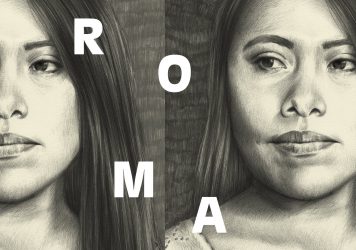
Roma sees Alfonso Cuarón return to his Mexican roots to tell a story of womanhood through the eyes of an indigenous maid named Cleo (Yalitza Aparicio). Yet any appraisal of the film seems incomplete without acknowledging two of the director’s earlier Spanish-language films, Sólo con Tu Pareja and Y Tu Mamá También. Raucous humour and a frank exploration of sexuality may be these films’ defining qualities, but they also offer vital explorations of masculinity, further critiquing racialised tropes linking Latin American men to hyper-masculinity.
Even in these early comedies, which lack the gravitas of Gravity and Roma, Cuarón portrays his characters with depth, nuance and sensitivity. Sólo con Tu pareja (Love in the Time of Hysteria) follows womanising ad exec Tomás (Daniel Giménez Cacho), who is falsely diagnosed with HIV at the height of the AIDS crisis. Envisaged as a retelling of the Don Juan myth, a tale from 17th century where an unabashed lothario receives divine punishment for his sexual exploits, the film offers a comedic assessment of hegemonic masculinity.
Within this frame, we’re encouraged to critique facets of toxic masculinity which manifest themselves in Tomás, particularly his treatment of women. Women, to Tomás, are utterly disposable, without any individuality, and only serve to bolster his ego; there’s even a scene where he’s on a date with two women at the same time.

However, we’re still urged to identify with his experience of stigmatisation and to recognise the vulnerable person lying behind his ready humour and sexual exploits. Through bodily gestures and an animated physicality, Tomás’ body is marked as a site for spectacle, which the film delivers on. Frequently shot nude — whether in the midst of sex or completing his morning routine of running for the morning paper while naked — he’s held up as a sexualised body subject to the spectator’s desiring gaze.
Yet as the film progresses, his frequent nudity also creates a sense of vulnerability and a level of intimacy with the audience. Within Tomás’ identity crisis, we see a man struggling to reconcile an identity built on being a desirable male object with a newfound status as pariah.
In a similar fashion, Y Tu Mamá También (And Your Mother Too) shows a more vulnerable side to masculinity, and explores what happens when men fail to deliver on gendered expectations. When teenagers Tenoch (Diego Luna) and Julio (Gael García Berna ) set off on a road trip with a mysterious older woman (Maribel Verdú), the tone is of a raunchy teen movie. The film goes on to subvert our expectations of the road movie, however, as Tenoch and Julio’s agency is frequently thwarted by Luisa; it’s always clear who is driving the plot, and pushing the young boys towards a path of self-discovery at odds with macho ideals. Behind their incessant fart jokes and puerile sexual exploits they are depicted as confused, insecure and ashamed.
At the film’s climax, a menage à trois with Luisa gives way to a same-sex kiss between the boys which elucidates the homoerotic tension that’s been building throughout. The adolescent characters’ constant jealousy and bickering are finally shown as products of suppressed homosexual desire. Yet rather than a moment of triumph, where the boys can finally emerge from the closet, the aftermath shows them heavily burdened by shame.
Waking up naked in one another’s arms, the shock (and hangover from the previous night’s drinking) leads to Tenoch running outside to be physically sick. His physical recoil embodies a visceral rejection of his bisexual desires and the film’s homoerotic subtext. In the final scene, despite their long history, the boys act like strangers when meeting for the last time. Seeing a queer identity at odds with masculinity, their friendship and mutual desire must be repressed in order to return to the path of gender conformation.
As society verges towards a general reassessment of gender, rejecting many preconceived notions about sexual orientation and gender roles, these two films become essential viewing. For obvious reasons, issues of inequality or critiques of gender roles have been primarily approached through a feminine lens. However, no reappraisal of women’s traditional role would be complete without a similar assessment of masculinity. In this regard, Y Tu Mamá También and Sólo con Tu pareja are hugely important for the respective ways they depict men as equally burdened by gender expectations.
Published 13 Dec 2018

Our latest print edition pays tribute to Alfonso Cuaròn’s personal ode to movies, Mexico and the woman who made him a man.

By Luís Azevedo
In a new video essay, Luís Azevedo takes us on a journey through the Mexican filmmaker’s colourful worlds.

The Mexican writer/director describes coming home to make Roma, his most profoundly personal film to date.